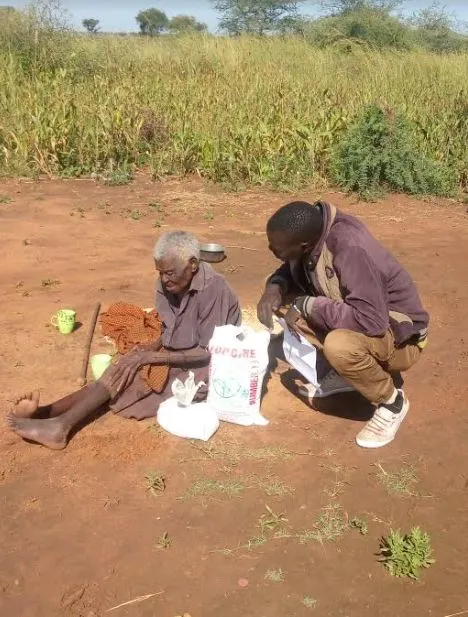By Kefa Senoga
Uganda Christian University (UCU) has responded to a call by the Anglican Church for Church-founded organizations to support hunger-stricken people in the Karamoja region of northeastern Uganda.
The UCU Chaplain, the Rev. Eng. Paul Wasswa Ssembiro, who led the campaign at the university, said that as of early October they collected sh4.5million (about $1,170) from students, staff and well-wishers of UCU.
“The response towards this cause was positive, it showed that people have learnt the idea of being your neighbor’s keeper,” Ssembiro said.
“When someone lacks food, you have to do something,” Ssembiro said, indicating that the UCU community had grown in their level of generosity.

While making a call for support to the people of Karamoja, the Archbishop of the Church of Uganda, Stephen Kaziimba, said: “We are our brothers’ keepers. Jesus Christ taught us to feed the hungry and reach out to the needy. That’s exactly what we are doing for our brothers and sisters in Karamoja and other areas affected by disasters.”
Kaziimba’s call comes hot on the heels of reports of people dying from hunger in the region. In June, Meri Jino, the chairperson of Kaabong, one of the districts found in Karamoja, said in addition to reported deaths in the region, many people cannot afford a meal and go for days without food. Jino made the remarks in June, during the launch of a food security report on Karamoja.
According to the report, named the Integrated Food Security Phase Classification, out of 1.2 million people in the region, 41% are experiencing high levels of acute food insecurity and that 91,600 children under the age of five years are acutely malnourished and in need of urgent medical attention. The malnutrition has not spared the adults, too. The report indicates that 9,500 pregnant and lactating women in the region need treatment for malnutrition.
According to the World Health Organisation, about 22% of children under five years in Moroto, one of the districts in Karamoja, are malnourished. In Kaabong, a neighboring district, the malnutrition rate for children in the same category is at 19.6%.
Fr Joseph Ogwal, who has been working with the vulnerable people in Karamoja as a Christian leader, said whenever he gets out of the gate at the seminary where he resides, he finds residents waiting to beg members of the clergy for food or money to buy food. He says he understands the pain that many of the members of the community are going through.
“I was born in Karamoja, so I know what it means to starve,” he said.
Margaret Nagiri, a resident of Moroto, told journalists who visited her home with officials from the United Nations Children’s Fund that it was increasingly getting hard for her family to afford daily meals. “If we get something to eat today, for the next three days, we may not get anything to eat,” she told a reporter of New Vision, a Ugandan daily newspaper, in July.
Ogwal attributes the food shocks in the region to the unpredictable rainfall patterns due to climate change. The area has also faced insecurity for a long time, with the communities participating in cattle raids, something the local leaders attribute to revenge attacks.
Traditionally, the World Food Programme has been distributing relief food to the people in Karamoja. However, the UN agency has of recent been changing strategy from food donations to empowering the communities to grow their own food crops by distributing seeds through non-governmental organizations. The local communities cite unfavorable weather patterns as a challenge to successful farming.
In August, Robert Kayanja, a pastor at one of the Pentecostal churches in Uganda, sent to Karamoja 20 tons of nutritious booster relief food. He said the flour was specially mixed for the people of Karamoja, with ingredients such as milk, sugar, rice, millet flour, oats and pumpkin seeds. Kayanja also promised that as part of the project, they would help the people to plant food crops.
Many other Non-Governmental Organizations, such as Last Drop Africa, have organized campaigns to support the initiative to donate food to the people in Karamoja. Through their campaign dubbed #MyLastMeal, Last Drop Africa that is spearheaded by UCU alum Alex Taremwa has partnered with leaders in Karamoja to distribute food relief purchased through crowdfunding to schools, hospitals and households in the severely affected communities.
Dr Mark Logiel, one of the few indigenous Karimojong who have mobilized support to help their home region through the Feed Karamoja Initiative, said it is always a challenge mobilizing relief aid to feed people, especially in such a time when the cost of living in Uganda has increased amidst high prices of fuel and commodities.
Americans wishing to help with the food needs in Karamoja can contribute through Uganda Partners’ donate site by indicating the funds go to the UCU chaplaincy for the food effort.


